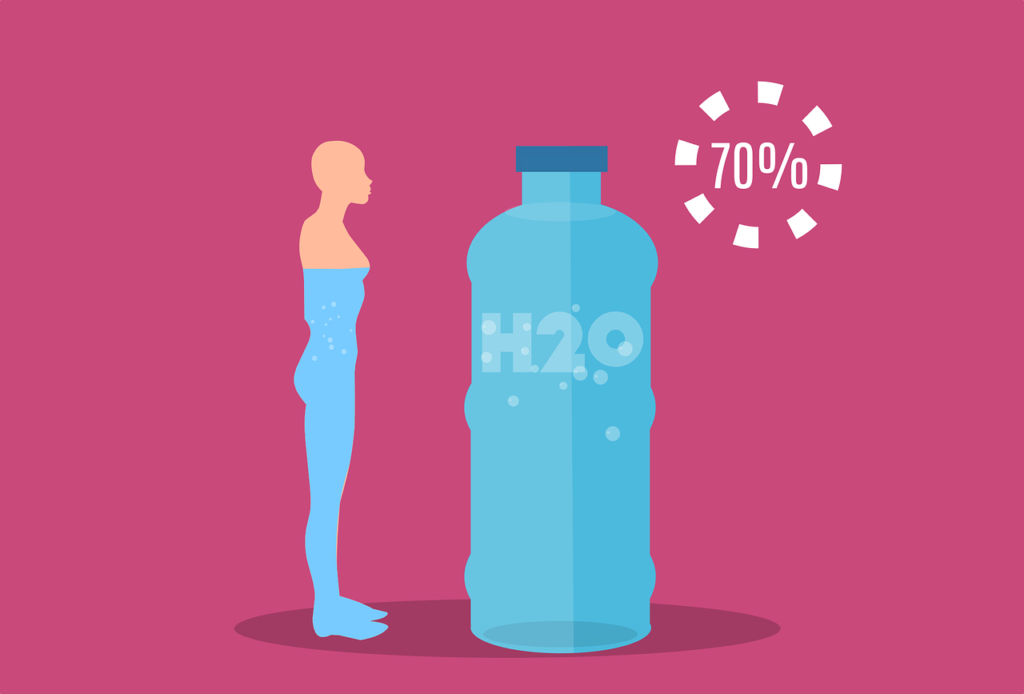Hydration is fundamental to human health and plays a crucial role in maintaining physical performance. Water is involved in nearly every physiological process in the body, including temperature regulation, nutrient transport, and waste removal. For athletes and those engaged in regular physical activity, maintaining adequate hydration is especially important. Dehydration can significantly impair physical performance and increase the risk of heat-related illnesses. This essay will explore ten key points highlighting the importance of hydration for physical performance, providing a comprehensive understanding of its effectiveness and benefits.

Importance of hydration for performance
1. Regulation of Body Temperature
One of the primary functions of water in the body is to regulate temperature. During physical activity, the body generates heat, and sweating is the mechanism by which the body cools itself. Sweat, which is primarily composed of water, evaporates from the skin, dissipating heat and maintaining a stable internal temperature. Dehydration impairs this cooling mechanism, leading to increased body temperature and risk of heat-related illnesses, such as heat exhaustion or heat stroke. Proper hydration ensures efficient thermoregulation, allowing for sustained physical performance.
2. Maintenance of Blood Volume
Hydration directly affects blood volume, which is critical for cardiovascular function during exercise. Blood volume decreases with dehydration, reducing the efficiency of the cardiovascular system to deliver oxygen and nutrients to working muscles. This can lead to increased heart rate, decreased stroke volume, and impaired performance. Adequate hydration helps maintain blood volume, ensuring optimal cardiovascular function and endurance during physical activities.
3. Muscle Function and Recovery
Water is essential for muscle function and recovery. It helps transport nutrients and oxygen to muscle cells and remove metabolic waste products such as lactic acid. Dehydration can lead to muscle cramps, fatigue, and decreased strength. Staying hydrated supports muscle function, reduces the risk of cramps, and enhances recovery by facilitating the removal of waste products and the delivery of essential nutrients to muscles.
4. Joint and Tissue Lubrication
Proper hydration is vital for maintaining the health and function of joints and tissues. Water acts as a lubricant, reducing friction and wear between cartilage surfaces in joints. It also helps maintain the elasticity and strength of connective tissues. Dehydration can lead to joint stiffness and increased risk of injury. By ensuring adequate hydration, athletes can maintain joint health and reduce the likelihood of injuries.
5. Cognitive Function and Concentration
Hydration affects cognitive function, which is crucial for maintaining concentration and coordination during physical activities. Even mild dehydration can impair cognitive abilities, leading to decreased focus, slower reaction times, and impaired decision-making. These cognitive deficits can adversely affect performance in sports and other physical activities. Proper hydration helps maintain cognitive function, ensuring that athletes can perform at their best both mentally and physically.
6. Endurance and Stamina
Endurance and stamina are significantly influenced by hydration status. Dehydration reduces the body’s ability to sustain prolonged physical activity by impairing thermoregulation, cardiovascular function, and muscle performance. Studies have shown that even a 2% loss in body weight due to dehydration can lead to a noticeable decrease in endurance. Staying properly hydrated helps maintain stamina and endurance, allowing athletes to perform at higher intensities for longer durations.
7. Electrolyte Balance
Hydration is closely linked to electrolyte balance, which is essential for various bodily functions, including muscle contractions and nerve signaling. Electrolytes such as sodium, potassium, and chloride are lost through sweat during exercise. Dehydration exacerbates the loss of these electrolytes, leading to imbalances that can cause muscle cramps, fatigue, and other issues. Consuming electrolyte-rich fluids during and after exercise helps maintain electrolyte balance and supports overall physical performance.
8. Digestive Health and Nutrient Absorption
Water is crucial for digestive health and nutrient absorption. It aids in the breakdown of food and the absorption of nutrients in the intestines. Dehydration can slow down digestive processes and lead to gastrointestinal issues such as constipation. For athletes, proper hydration ensures that their bodies can efficiently process and absorb the nutrients needed for energy production and recovery.
9. Immune Function
Hydration plays a role in maintaining a healthy immune system, which is important for overall health and physical performance. Water helps transport nutrients and oxygen to cells, including immune cells, and removes waste products from the body. Dehydration can weaken the immune system, making the body more susceptible to infections and illnesses. Staying hydrated supports immune function, helping athletes maintain their health and performance levels.
10. Psychological Well-being
Hydration also affects psychological well-being, which can influence physical performance. Dehydration has been linked to mood disturbances, increased perception of effort, and decreased motivation. These psychological factors can negatively impact an athlete’s performance. Proper hydration supports mental well-being, helping athletes stay motivated, focused, and positive during training and competitions.
Hydration is a key factor in optimizing physical performance. It supports various physiological functions, including temperature regulation, cardiovascular efficiency, muscle function, joint health, cognitive abilities, endurance, electrolyte balance, digestive health, immune function, and psychological well-being. Dehydration can impair these functions, leading to decreased performance and increased risk of injury and illness. Therefore, maintaining adequate hydration is essential for athletes and individuals engaged in regular physical activity. By prioritizing hydration, athletes can enhance their performance, prevent health issues, and achieve their fitness goals. Ensuring proper fluid intake before, during, and after exercise is a simple yet effective strategy to support optimal physical performance and overall well-being.






[…] […]
[…] In recent years, the connection between nutrition and mental health has garnered significant attention from researchers, health professionals, and the public. While it is well-established that diet… Read More […]
[…] In recent years, the connection between nutrition and mental health has garnered significant attention from researchers, health professionals, and the public. While it is well-established that diet… Read More […]